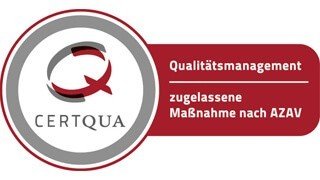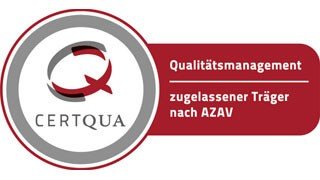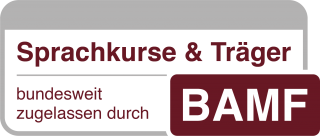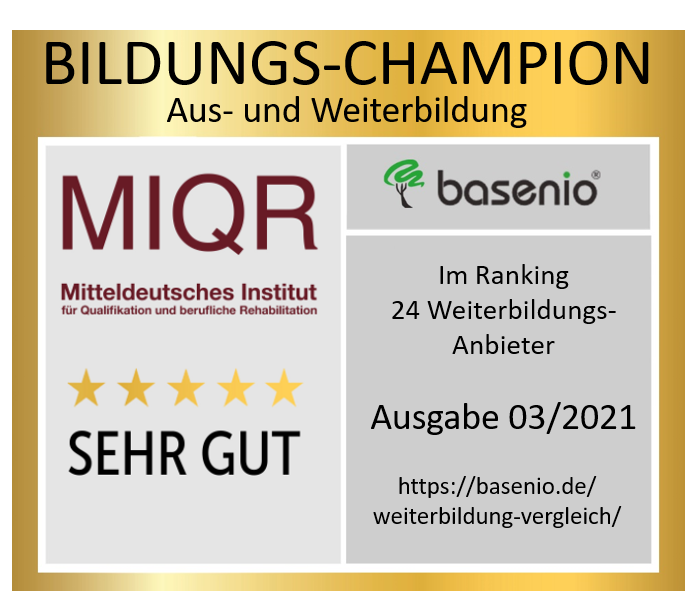Learn Accounting for Beginners Basics | Tasks | Education | salary
Learn bookkeeping for beginners & career changers - information, basics, tasks, Training & salary at a glance
Status: 10.02.2021/25/XNUMX | Reading time: XNUMX minutes | Author: S. Grober | Co.: S. Lenzner
Carrying out the bookkeeping is essential for all entrepreneurs, freelancers and self-employed. However, many think that bookkeeping is expensive, difficult and complicated. But that doesn't have to be! With the right basic knowledge, it is even possible for beginners and career changers to learn bookkeeping safely and even start a successful career in this field.
In this article we have put together everything you need to know about accounting: Here you can find out everything about the requirements, areas of responsibility, salaries, career prospects and much more!
Difference between bookkeeping and bookkeeping
Bookkeeping is the same as bookkeeping? Unfortunately, this is a common misconception. Although the terms are often used interchangeably in colloquial language, they mean different things. So that you can tell the two terms apart in the future, we will explain to you what bookkeeping and bookkeeping actually are and what the difference is.
The Accounting will also be external accounting and is an important part of business accounting. Within a company, it forms the organizational area or department that deals specifically with the documentation and evaluation of all business transactions. Your main task is to to record the economic situation of the company and to present it correctly to the outside world. Accounting uses various methods of data collection, e.g.:
- Balance
- Profit and Loss Account
- Management report
- cash flow statement
- Inventory (taking stock of all assets and debts)
The bookkeeping is subject to the duty of disclosure. This means that traders and companies are obliged to disclose information about their financial situation to the tax office and have it checked. The disclosure obligation applies not only to the tax office, but also to customers, suppliers and creditors. On the basis of this data, outsiders can assess the liquidity (solvency) and profitability of the company and decide whether they want to enter into a business partnership.
Legal regulations must be observed when preparing and organizing the data and documents. These are through this commercial code (HGB) and relate specifically to accounting. the Accounting describes the methodology, the procedure, how information has to be provided. This is about the precise ordering and dating of all business transactions on the basis of receipts. These must be recorded completely and in an orderly manner and serve as accounts, i.e. as evidence for all business transactions of the company. The accounting reflects the status of a company in numerical values. It is therefore a very important source of information and the basis for all business accounting.

The main task of internal accounting (or controlling) are the
- Planning,
- control and
- Coordination of business processes from the inside.
It works with numerical values that relate specifically and exclusively to the internal performance processes. Internal accounting monitors and documents all expenses and income as well as the company's assets and capital. It also provides the basis for making decisions about when and which internal investments make sense. It is therefore not only present-oriented but also future-oriented and aims to maximize the company's profits. Internal accounting thus provides an overview of the company's financial situation and serves as an important source of information for management and other internal company departments. Cost and performance accounting is an important part of this. It records, for example, the services that are used for personal needs or that come about due to self-generated energy or through repairs and maintenance work.

Need for Bookkeeping & Bookkeeping
Through accounting, one can general overview of all business transactions be won. It is of enormous importance for a company, since it can be used to determine and specifically promote economic success. Accounting documents, plans and controls the financial transactions. She shows exactly how things are going Income and asset situation of the company stands and makes its liquidity verifiable. Therefore, orderly and complete bookkeeping is absolutely necessary and even required by law.
The accounting obligation applies according to Section 238 of the Commercial Code for all companies and tradespeople that are entered in the commercial register. These include:
- sole traders
- Partnerships
- corporations
As soon as a certain income limit is exceeded, every merchant is obliged to keep accounts, i.e. to document all financial transactions. It is important that the business transactions are processed in a comprehensible manner in their origin and processing.
Even non-merchants, such as craftsmen and farmers, are subject to Section 141 of the Tax Code the tax accounting obligation.

Learn bookkeeping: You have these optionse
Accounting and bookkeeping often form one department in everyday business. However, it is possible to continue your education separately in both areas. Accounting and bookkeeping can be learned in many different ways. Online tutorials, books and media give you the opportunity to acquire commercial skills through self-study. However, you are then on your own when there are open questions and when solving misunderstandings and problems. In official training, on the other hand, you have the advantage of being taught professionally under the supervision of certified trainers and teachers. Depending on which course you choose, the duration of the training and the specific course content can vary from provider to provider.
Prerequisite
With an apprenticeship in the field of bookkeeping or bookkeeping, you have the opportunity to consolidate your previous position or to enter this professional field. If you are interested in starting a career in this field, you must meet certain requirements in order to meet the requirements of this profession. It is important that you can prove that you have basic commercial and business knowledge, either through commercial vocational training or through several years of professional experience in the commercial field. A degree in business administration also qualifies you to pursue a career in accounting.
You should definitely be familiar with the Microsoft Office applications. Word, Excel, PowerPoint and Outlook have become indispensable in everyday commercial life. Therefore, you should feel confident in using these programs. Since the field of bookkeeping and bookkeeping mainly relates to postings, invoices and calculations, it is important that you have the ability to work in a concentrated and independent manner. In day-to-day work, you will also work on problem-solving in a team, but the job still requires a high degree of independence and responsibility. Accuracy, correctness and order are the top priorities in bookkeeping and bookkeeping. You should therefore bring a certain organizational talent with you. Ability to express yourself well both orally and in writing would also be an advantage. Equipped with these skills, nothing stands in the way of your training in the field of bookkeeping and bookkeeping!

If you want to refresh your skills in MS Office applications, we at Mitteldeutsches Institut have the ideal solution for you! In our MS Office applications course, you will learn basic, user and advanced knowledge of the most important Microsoft programs (Word, Excel, PowerPoint and Outlook). If you want to learn more, read on here You can also contact us directly. You can reach us via our online inquiry form or by telephone on 0800 7789100.
Vocational Training
Anyone who has completed commercial training is qualified to work in bookkeeping or bookkeeping. The term "accountant" is not a protected job title, which means there is no official professional training that trains you directly in this field. Nevertheless, there is the opportunity to train specifically in bookkeeping and bookkeeping and to acquire a state-recognized degree. By continuing your professional education and gaining professional qualifications, you have the ideal opportunity to become a valuable employee for the company.
There are four official further training options that you can use to advance your career in bookkeeping and bookkeeping as a trained businessman, but also as a beginner or career changer.

You will then find out everything you need to know about the various further training courses and further training content, as well as career and salary prospects in the field of bookkeeping and bookkeeping.
Training in accounting
There are different ways to study accounting and learn the technical skills to pursue a career in this field. However, there is no classic training for a job in accounting. Instead, you can complete commercial training. Many educational institutions have also listed further training in the field of accounting in their courses. Such measures are offered, for example, by the local chambers of industry and commerce (IHK), but also by adult education centers as well as by social service providers and private companies. However, pay attention to the course content. Because there are training courses that only focus on strengthening commercial skills in accounting, as well as training courses that qualify for starting a career in accounting. If you want to train as a (financial) accountant or bookkeeping specialist, you must choose a course that includes an IHK exam. Only if you pass the final exam will you receive the certificate with which you can prove your professional qualifications. You will also receive a state-recognized qualification that increases your potential on the job market.
Depending on the qualification or degree you are aiming for, you have the opportunity to apply for the certified (financial) accountant or. for accounting specialist, certified accountant or to the Specialist in payroll accounting to be trained.
training in accounting
As with bookkeeping, there is no professional training for bookkeeping. Here, the path to starting a career also leads through further training and professional qualifications. However, bookkeeping is an organizational and methodical procedure that is used in bookkeeping. Separate courses are rarely offered that enable professional training and qualifications in the field of accounting alone. Instead, it is often offered in combination with further training in the field of accounting.
Nevertheless, there are some educational institutions that focus certain courses solely on how to properly implement bookkeeping. Here, too, there are courses that only serve to deepen knowledge and strengthen skills and courses in which a state-recognized degree can be obtained. If you are striving for an official qualification in accounting, then make sure that your desired course includes an IHK examination. Because that's the only way you can get the official degree Accounting Specialist magazine.
Bookkeeping & bookkeeping learn at the MIQR
We at the Central German Institute for Qualification and Vocational Rehabilitation (MIQR)have different training courses in our range of measures in which you can acquire specialist skills in bookkeeping and bookkeeping. In our range of courses for commercial modular qualification (KMQ) you will find four ways to further your education and commercial qualifications in this area.
Accounting (Basics)
In our specialist module Accounting learn basic commercial skills that are urgently needed for work in accounting. Here you will learn the importance of bookkeeping for a company and will be informed about the legal regulations for bookkeeping. You will also learn how current business entries and year-end entries are created. At the end of the training, you will receive a certificate of participation, which you can use to prove your bookkeeping skills and increase your professional potential.
The most important content of this course was included in our new further training with the conclusion IHK specialist for wages and salaries summarized. You can find more information in the associated chapter.
Financial Accounting with Lexware or Datev
In our specialist module Financial Accounting learn how you do using the accounting software Lexware or DATEV process important work steps. You will be trained professionally and practically to carry out accounts receivable and accounts payable as well as asset and goods accounting with the computer-aided programs. After completing the measure, you will receive a certificate of participation. With this document you can prove that you have been trained in the use of accounting software and have completed specialist training in financial accounting.
The most important content of this course was included in our new further training with the conclusion IHK specialist for wages and salaries summarized. You can find more information in the associated chapter.
Bookkeeping specialist with a recognized Chamber of Industry and Commerce qualification
In our module Bookkeeping Specialist (IHK) you have the opportunity to learn important components of bookkeeping and financial accounting (including their sub-areas accounts payable, accounts receivable as well as asset and goods accounting). Here you will be trained to document all of the company's economic processes correctly and in accordance with the legal framework and to store and prepare them for further processing. Here you will be familiarized with the workflows of internal and external accounting, learn which business calculations are important and how they are carried out using the right software. Here you will not only be trained professionally, but also get the best opportunity to acquire a qualified specialist degree through a final examination at the Chamber of Industry and Commerce.
The most important content of this course was included in our new further training with the conclusion IHK specialist for wages and salaries summarized. You can find more information in the associated chapter.
Specialist for wage and salary accounting with a recognized IHK qualification
In our module Specialist for wage and salary accounting (IHK) you can further educate yourself and specialize in a sub-area of accounting: payroll accounting. Here you will learn important tax and social security content that should qualify you to take on the responsible tasks of wage and salary accounting. For this purpose, you will be introduced to business accounting and important accounting software (Lexware and DATEV). Professionally and practically optimally trained, the further training leads you directly to the IHK final examination. After passing the exam, you will then receive an additional qualification and the professional title Specialist for Payroll Accounting.
For more information about our module Specialist for Payroll Accounting (IHK) read more here.
With us at the Mitteldeutsches Institut you can benefit from many advantages. With our comprehensive range of training and support, we would like to prepare you as best as possible for your successful career start in the commercial sector!

Would you like to find out more about our range of services? Then contact us now using our inquiry form or by telephone on 0800 77 89 100.
Tasks
Bookkeeping and bookkeeping form an important sub-area of accounting and concentrate on documentation expenditure, planning and control expenditure as well as control tasks. Bookkeeping and bookkeeping are often combined into one activity and processed in one department. However, we want to show you in detail what the special tasks of bookkeeping and bookkeeping are and into which fields of activity they can be divided.
Duties as a certified (financial) accountant
As a (financial) accountant or as an accounting specialist, your field of activity can include the various sub-areas of accounting. This includes:
- Financial Accounting
- Payroll accounting
- accounts receivable
- Accounts Payable
- Asset Accounting
The following applies: the larger a company is, the more differentiated the departments and tasks of accounting are.

Financial Accounting
The Financial Accounting deals specifically with the finance and accounting of a company. Your goal is to determine the company's bottom line, that is, how much profit and loss has been made in a given period of time. Financial accounting works primarily with the preparation of a profit and loss account (P&L) and the balance sheet. Here, key business figures from business and operational accounting (e.g. for monthly, quarterly or annual financial statements) are compared, balanced and evaluated. This means that not only expenses and income can be determined, but also inventory changes. The results are then presented to the management of the company. In the course of this, controlling and controlling functions are exercised. Based on his observations and calculations, the financial accountant can then make recommendations for further business decisions. In addition, financial accounting prepares the basis for taxing the company's success as part of the income statement.
accounts receivable
Accounts receivable and accounts payable are sub-areas of financial accounting, but can also have their own area in larger companies. In the accounts receivable All business transactions are recorded that affect the customers (debtors) of a company. Receivables that are provided to customers are managed here. These usually arise, for example, from the sale of goods or services. From the company's point of view, the debtors are the debtors who have to settle claims arising from deliveries and services
Accounts Payable
The Accounts Payable is exactly the opposite of accounts receivable. This is where the relationships and liabilities that the company has with the so-called creditors are managed. Creditors are suppliers or external providers, i.e. entities from which the company, now itself as a customer, procures goods or services. The ultimate goal of accounts payable is to maintain supplier relationships. As a result, this accounting department works closely with the purchasing department. You keep an eye on all open invoices and are responsible for punctual outgoing payments. This is the only way to ensure that products and services are available on time and that the procurement process can function smoothly.
Asset Accounting
The way food is Asset Accounting is a part of financial accounting and can form a separate department in larger companies. The focus here is on managing the assets, i.e. the systems of a company. Assets are all assets that exceed a certain value and are not consumed so that they bring long-term benefits to the company. Fixed assets include, for example, company cars, buildings and land or office equipment such as laptops, fax machines and printers. Various pieces of information need to be collected and recorded for all of these assets, including the date of acquisition, the amounts of depreciation and the useful life. In asset accounting, all additions and disposals of tangible assets are recorded in the respective asset files and property taxes are calculated. Other tasks include the annual determination of how much the value of a tangible asset has decreased (this is referred to as depreciation in technical jargon). By deducting the annual depreciation from the original purchase price, the current value of the system can be calculated. Based on this, a decision can then be made on how to adjust the insurance policies for the relevant valuables. In this way, asset accounting always provides a precise overview of which tangible assets are owned by the company and what their value is. On this basis it is possible to create efficient investment plans. Thanks to the source of information processed by asset accounting, it can be decided whether repairs make sense or whether it would be more worthwhile to purchase a new system. In addition, it is possible to plan the right time for a new purchase in advance, so that no unnecessary funds are wasted.
Tasks as a specialist for payroll accounting
The field of activity of the specialist for payroll accounting mainly relates to the payroll accounting. Although this is also a sub-area of (financial) accounting, it is usually carried out by qualified specialists in larger companies.
Payroll accounting includes the correct accounting of wages and salaries as well as the associated social benefits. These include, for example, pension and health insurance contributions, but also payments to unemployment insurance. Special payments such as vacation or Christmas bonuses are also calculated, taking into account the applicable collective agreements and works agreements. Payroll accounting also takes care of the maintenance of personnel files. This means that wage accounts are created for each employee, in which all important information about the respective person is documented. It is also responsible for complying with statutory reporting requirements. This includes registering wage tax and providing proof of health insurance contributions. It is important that the Data Collection and Transmission Ordinance (DEUEV) is complied with so that the employees can claim benefits from the responsible insurance carriers. In addition, payroll accounting is responsible for the creation of accounting documents for financial accounting and, in smaller companies, often deals with the creation of employment contracts.

Duties as a certified accountant
The balance sheet accounting is a very respected field of activity because it not only takes on important functions in external accounting, but also in internal accounting. This means that it both provides information and makes it available to outsiders as well as to management. At the end of the financial year, the annual financial statements are prepared using the balance sheet and the income statement. This accounts for the company's business activities and provides the tax office with evidence of the company's business transactions. Depending on the size of the company, interim balance sheets are also calculated quarterly or every six months. These serve to provide information about the current financial situation of the company and provide the mathematical basis for creating operational and strategic plans that are intended to promote the economic future of the company. Balance sheet accounting therefore supports important decisions, for example in relation to possible investments, new projects or when determining the need for new staff.
Furthermore, the balance sheet accounting also calculates the tax obligations of the company. For this it is necessary that the accountant is up to date with tax law and observes all tax advantages and special regulations. The level of knowledge must therefore be constantly updated. In the area of balance sheet accounting, for example, there are regular further training courses.

Accounting tasks
The field of activity of bookkeeping mainly includes tasks in office organization. Basic commercial skills are required here in order to be able to correctly document and process all of a company's business transactions. It is important that the principles of proper bookkeeping are observed. The statutory regulations are in Commercial Code § 238 et seq recorded:
- Merchants and traders are obliged to be able to produce a receipt for each booking. No booking may be made without receipt.
- The books must be kept complete, i.e. without gaps. It is important to record every business transaction, to show all assets as well as all debts.
- In addition, all records must be clear and concise, for example to make it easier for the tax office to view them during operational management.
- Clarity and transparency are the top priority in bookkeeping so that all business transactions can be checked and traced using the appropriate documents. Corrections and changes must also be made precisely. However, this is only possible through adjustment postings.
- Bookings must be made and recorded correctly, both formally and materially. On the one hand, this means that the accounts or account names are used exclusively for operational events and that the correct connection between posting and document is established. On the other hand, the actual content and value of the booking must be properly recorded.
- It is important that the bookings are made within a certain period of time. It is also important to keep a chronological order.
- Most records must be retained for six to ten years. The statutory retention obligation applies specifically to tax documents HGB § 257.

Competent handling of industry software is also necessary for work in accounting, as well as a confident appearance in oral communication and in business correspondence.
The accounting tasks relate mainly to the current account area. In business, current account is the usual way in which receivables and payables are continuously offset according to the agreement between two business parties. Accounting also establishes the status of assets and liabilities, records any changes and determines the success of the business. It also provides the basis for calculations and tax determinations and serves as evidence for internal controls.
In addition, the bookkeeping controls all processes in operational payment transactions and also organizes the dunning process in smaller companies.
Relevance of accounting software
Since accounting is now almost exclusively done electronically, the competent use of accounting software is of great importance. With the help of the appropriate programs, many work steps can be carried out faster, more environmentally friendly and automatically. Thanks to modern software, posting of individual business transactions can be made easier and invoices can be sent by e-mail. Reminders can also be sent digitally and automatically. In addition, it is possible to carry out the income surplus account and the double-entry bookkeeping with profit and loss account and balance sheet account. Asset accounting is also possible with the help of accounting software. Thanks to the programs, individual cost centers can be clearly documented. The software thus serves as a source of information and shows the services for which costs have been incurred in the company. Master data and document management can also be carried out. The great advantage here is that the software programs ensure greater data security, since the personal information of the employees is encrypted and can also be restored in an emergency.
There are different software offerings, each with specific features that make them more or less suitable for a particular industry.
job prospects
Accounting is one of the cornerstones of any business! This means that you will be in demand everywhere with these commercial skills and a broad market of potential employers will open up to you. Accountants and bookkeeping professionals are needed in every medium-sized or large company. As a certified (financial) accountant, certified accountant, IHK specialist for payroll accounting or IHK specialist for bookkeeping, you can apply to companies in almost all sectors of the economy and even in public administration. Places of work come, for example
- industrial company,
- advocacy groups,
- service company,
- trading companies,
- larger handicraft businesses,
- associations,
- non-profit organizations or the
- public service
in question.
salary
When choosing a career, the question of salary plays a very important role. After all, the monthly costs have to be covered. With a job in bookkeeping or bookkeeping, you have the opportunity to earn well and increase your finances. Here we have compiled the monthly average salaries from all federal states for you. These are only statistical guidelines that you can use as a rough guide. Ultimately, the amount of the salary also depends on what previous experience you have, what position you hold in accounting or whether you have other additional qualifications.
Salary as a financial accountant/accounting specialist
After successfully completing further training and professional qualification as a financial accountant or bookkeeping specialist, you can expect a starting salary of at least €2.000 gross per month. However, salary expectations can also be negotiated, depending on your professional experience and skills.

Certified financial accountants or accountants earn in nationwide average €3.324 [as of December 2020]. Hessen leads with an average monthly salary of almost €4.000, closely followed by Baden-Württemberg. In most federal states, the salary varies between €3.300 and €3.800. However, there are also some federal states that have a lower average salary. Mecklenburg-Western Pomerania brings up the rear with an average of €2.712 gross per month.
Don't forget that salary negotiations are dependent on several factors and the values collected here are not fixed figures. In principle, higher salaries are also possible.
Salary as a specialist for payroll accounting
As a certified IHK specialist for payroll accounting, you can look forward to good remuneration in the upper middle class. For beginners and career changers, the starting salaries are usually a little lower, around between €2.000 and €2.300. After a few years of professional experience and skills in payroll accounting have been strengthened, the salary can be increased.

Im nationwide average Payroll specialists earn around €2.564 gross per month [as of December 2020]. In Hesse, Baden-Württemberg, Hamburg and Bavaria, you can count on high earnings of around €2.900 to €3.050. In most other federal states, salary expectations vary between €2.200 and €2.800. However, average salaries in Brandenburg, Saxony-Anhalt and Mecklenburg-Western Pomerania are less than €2.200 gross per month.
Please note that these are only statistical values. Irrespective of this, the real salaries in the individual federal states can vary from job to job. This means that higher incomes are also possible.
Salary as certified accountant
The qualification to become a certified accountant is a highly recognized qualification that also promises very good salary prospects. Even career changers can count on a starting salary of around €3.000 gross per month. Depending on the size of the company and the professional experience and skills you bring with you, the monthly salary can be several hundred euros higher.

The nationwide gross average salary is €3.738 per month for certified accountants [as of December 2020]. The highest earnings can be achieved in Hesse, with an average gross monthly salary of €4.533. You can also count on a salary of over €4.000 in Baden-Württemberg, Hamburg, Bavaria, North Rhine-Westphalia and Rhineland-Palatinate. The lowest gross monthly salary is in Mecklenburg-Western Pomerania (€3.101). Don't forget that salary information depends on several factors and can even be negotiated at the interview. In principle, the earnings can also be higher.
Accounting Specialist Salary
If you acquire the additional qualification as a specialist for bookkeeping, you can count on a good salary in the upper middle class. Even if you have little professional experience or are starting out as a career changer, you can expect a starting salary of around €2.200.

Im nationwide average certified accounting professionals earn a monthly gross salary of €2.731. In Hesse, Baden-Württemberg and Bavaria, you can even count on a gross monthly salary of over €3.000. Mecklenburg-Vorpommern has the lowest monthly salary with an average of €2.229 per month.
Summary
Do you not only want to learn bookkeeping and bookkeeping, but also want to focus your career specifically on this commercial area? Then take the opportunity for professional training and qualification! In bookkeeping and bookkeeping, a wide range of fields with promising career and salary prospects open up to you. You can continue your education in financial accounting and acquire the recognized qualification of a certified accountant. However, you can also specialize in payroll or balance sheet accounting and complete further training to become a specialist in payroll accounting or to become a certified accountant. A professional qualification with a specialist degree is also possible in the field of accounting. No matter which profession you choose: With these state-recognized qualifications, you have excellent opportunities for a successful career.
Follow your personal goals and acquire the qualifications you need to advance your professional future. At the Central German Institute you have the optimal opportunity to further your education and qualifications in the field of bookkeeping or bookkeeping. Here you will receive both basic knowledge and practical specialist knowledge so that you are optimally prepared for your career start.
If you would like to know more about our offers, please contact us. We will be happy to advise you and help you with your questions. You can reach us via our online inquiry form or by telephone on 0800 77 89 100.
Do you find this article interesting and would you like to be kept up to date on all events from now on? Then give a "I like it" for our official MIQR Facebook page or subscribe to ours Instagram account!
If you have any questions about our offer or would like personal and individual advice, please send us an inquiry.






























